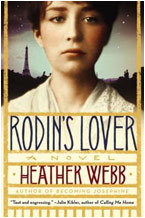Dialogue is essential to bring characters to life and to keep the pace of a story cooking. But writing one isn’t as easy as it looks. It’s a skill that must be practiced, like any other. I seldom write a perfect dialogue in the first draft, but have found that following a few rules helps me to cut unnatural, forced conversations and amp up the action. I selected a few lines of terrible dialogue I’ve read recently to illustrate my points.
1. LISTEN TO CONVERSATIONS AROUND YOU. Get a feel for the natural cadence of speech patterns and common expressions. You’ll soon notice that we are interrupted constantly, change topics without finishing a thought, and, on occasion, have grammatically incorrect word usage. If your characters are always speaking in complete sentences with proper language structures, it’s time to edit!
2. AVOID USING TOO MANY DIALOGUE TAGS. It’s irritating to read “she/he said” every time someone speaks. Substituting with amazing synonyms for these tags doesn’t cut it either. Ultimately, it draws the reader’s attention away from the emotional element of what is taking place between two characters.
ex. “I need to know right now!” He exclaimed.
Improvement: “I need to know right now!”
He’s already yelling at someone by putting an exclamation mark. You don’t need to tell us “he exclaimed” the sentence- it’s obvious.
3. STOP WITH THE INFO-BARF. Redundant or unnecessary details creates stalemate conversation. A character shouldn’t say everything they think or feel. If so, they’re DULL, DULL, DULL, or the conversation just winds up feeling phoney.
ex. “You never want to do anything! You’re as dull as a spoon and I’m so sick of it. I’m think I’m going to leave you.”
Improvement: “You bore me to tears. I”m outta here.”
4. ACTIONS SPEAK LOUDER THAN WORDS. You don’t want your characters to become puppets spouting out words. Gestures and snippets of movement need to be incorporated for them to come alive; for the reader to BECOME part of the scene.
ex. “I’m really upset,” Jordan said.
“I’m sorry. Can I do anything to help?” Adam asked.
Improvement: “I’m so upset,” Jordan brushed the tears from her cheeks.
Adam put his arm around her shoulders. “Can I help?”
5. KEEP ADVERBS TO A MINIMUM. It doesn’t matter if you’ve found a dozen of the most apt, brilliant adverbs EVER. Again, you’ve put the reader in the position of outsider by using an adverb instead of drawing them into the story. An occasional “ly” is fine, but don’t over do it.
ex. “I don’t know…,” she said inaudibly.
Improvement: “I don’t know…,” she mumbled through clenched teeth.
6. EDIT FILLER WORDS. Though filler words happen in real life, they’re boring to read. Less is more in this case.
ex. “I watched him walk across the room speedily before ripping open the front door.”
Improvement: “He stomped out the front door.”
This particular unfortunate section of dialogue has both filler words and info-barf happening. EDIT!
7. READ YOUR DIALOGUE ALOUD. This is a great way to get a feel for the rhythm of your characters’ conversation. Choose a partner to read it aloud with you. It becomes instantly obvious which words and phrases need to be eliminated.
2 Comments
Join the conversation and post a comment.















…really good blog, Heather. I am not a fiction writer, but have attempted it from time to time and find it much more difficult and time consuming than non-fiction. The most difficult parts to me are developing characters and writing believeable dialogue.
In my memoir, I tell many stories about interacting with my guests at my bed and breakfast so I have to deal with dialogue. I’ve actually used some of the same tips you offer here…
Heather!! I’m sooo glad you mentioned #4. Action coupled with dialogue never fails to make me feel like I am right there! The response is immediate.
I too, really appreciate #1. Dialogue, when truly spoken, is never perfect…it’s important, as writers, to enjoy the freedom of writing imperfect dialogue.
Thanks!